What You Need To Know About B Vitamins and Your Brain – The 5 Incredibly Important Health Benefits to Experience
What You Need To Know About B Vitamins and Your Brain – The 5 Incredibly Important Health Benefits to Experience
Overview
Have you ever wondered why B vitamins are often touted as essential for brain health? These crucial nutrients play a vital role in maintaining our brain’s function and overall well-being. In this article, we’ll delve into the world of B vitamins and explore the important health benefits they offer for your brain. So, let’s dive in and uncover the fascinating connection between B vitamins and your brain health!
The B Vitamin Family
The B vitamin family consists of eight distinct vitamins, each with unique roles in various bodily processes. Here’s a brief overview of their functions:
- B1 (Thiamine): Thiamine is involved in energy metabolism and nerve function. It plays a key role in converting carbohydrates into energy for the brain and other tissues.
- B2 (Riboflavin): Riboflavin is essential for energy production and acts as an antioxidant, protecting brain cells from oxidative stress.
- B3 (Niacin): Niacin participates in cellular energy production and supports the maintenance of healthy brain cells.
- B5 (Pantothenic Acid): Pantothenic acid is crucial for synthesizing coenzyme A, a molecule involved in energy production and fatty acid metabolism.
- B6 (Pyridoxine): Pyridoxine is necessary for neurotransmitter synthesis, including serotonin and dopamine, which regulate mood and cognition.
- B7 (Biotin): Biotin plays a role in energy metabolism and aids in the breakdown of fatty acids.
- B9 (Folic Acid): Folic acid is essential for DNA synthesis and repair and plays a crucial role in brain development during pregnancy. It also contributes to neurotransmitter synthesis.
- B12 (Cobalamin): Cobalamin is involved in DNA synthesis, red blood cell production, and the maintenance of nerve cells.
B Vitamins and Your Brain

The B vitamins’ primary function is to support energy production in the body. Through various enzymatic reactions, they convert carbohydrates, fats, and proteins from the food we consume into usable energy. The brain is one of the most energy-demanding organs, and its proper function relies on a steady supply of energy.
A study published in the journal Nutrients in 2016 emphasized the importance of B vitamins in energy metabolism and their role in maintaining mental clarity and cognitive function.
Neurotransmitter Synthesis
Neurotransmitters are essential for communication between nerve cells. They regulate mood, memory, and cognition. B vitamins, especially B6, B9, and B12, are involved in the synthesis of various neurotransmitters.
For example, vitamin B6 is crucial for the production of serotonin and dopamine, both of which play significant roles in mood regulation and pleasure. A deficiency in these neurotransmitters can lead to mood disorders like depression and anxiety.
A review published in the Journal of Psychiatry & Neuroscience in 2017 discussed the influence of B vitamins on neurotransmitter synthesis and how their deficiency might contribute to mental health disorders.
Cognitive Function and Memory
Maintaining cognitive function and memory is of paramount importance, especially as we age. Several studies have explored the relationship between B vitamins and cognitive health.
Research has suggested that vitamins B6, B9, and B12 may help reduce the risk of cognitive decline and age-related memory loss. A study published in the International Journal of Geriatric Psychiatry in 2017 investigated the effects of B vitamin supplementation on cognitive function in older adults.
Mood and Emotional Well-being: B vitamins have been linked to mood regulation and emotional well-being. Vitamin B6, in particular, plays a role in the synthesis of neurotransmitters that influence mood. Deficiencies in B vitamins, especially B6 and B9, have been associated with an increased risk of depression and other mood disorders.
A systematic review and meta-analysis published in the journal Nutrients in 2019 examined the effects of B vitamin supplementation on depressive symptoms, anxiety, and stress.
Homocysteine Levels and Brain Health: High levels of homocysteine, an amino acid in the blood, have been associated with an increased risk of heart disease and cognitive impairment. B vitamins, specifically B6, B9, and B12, play a vital role in converting homocysteine into methionine, an essential amino acid.
A study published in the Journal of the American Geriatrics Society in 2017 investigated the relationship between B vitamins, homocysteine levels, and cognitive function in older adults.
What is the Best Natural Source to Obtain B Vitamins
The best natural sources to obtain B vitamins are a diverse range of foods, including whole grains, fruits, vegetables, legumes, nuts, seeds, and animal products. Here are some specific examples of B vitamin-rich foods:
- Vitamin B1 (Thiamine): Whole grains (such as brown rice, oats, and whole wheat), legumes (beans and lentils), nuts (especially peanuts), and pork are good sources of thiamine.
- Vitamin B2 (Riboflavin): Dairy products (milk, yogurt, and cheese), leafy greens (spinach and kale), mushrooms, and almonds are rich in riboflavin.
- Vitamin B3 (Niacin): Foods high in niacin include poultry (chicken and turkey), fish (tuna and salmon), whole grains, peanuts, and legumes.
- Vitamin B5 (Pantothenic Acid): Pantothenic acid can be found in a variety of foods, including meat, avocados, mushrooms, and whole grains.
- Vitamin B6 (Pyridoxine): Foods rich in vitamin B6 include chickpeas, potatoes, bananas, poultry (chicken and turkey), and fish (tuna and salmon).
- Vitamin B7 (Biotin): Biotin can be found in egg yolks, nuts (almonds, peanuts, and walnuts), sweet potatoes, and cauliflower.
- Vitamin B9 (Folic Acid): Excellent sources of folic acid include leafy greens (spinach and kale), lentils, beans, avocados, and fortified grains.
- Vitamin B12 (Cobalamin): Vitamin B12 is primarily found in animal products such as meat (beef, lamb, and poultry), fish (salmon and trout), eggs, and dairy (milk and yogurt).
What is the Best Way to Use B Vitamins
The best way to obtain B vitamins is through a well-balanced diet that includes a variety of foods rich in these essential nutrients. Consuming a wide range of whole grains, fruits, vegetables, nuts, seeds, legumes, and animal products can ensure an adequate intake of B vitamins. However, some individuals, such as pregnant women, vegans, and older adults, may have specific B vitamin needs and might benefit from supplementation. It’s crucial to consult with a healthcare professional to determine the appropriate dosage and form of B vitamins based on individual health status and dietary habits.
Here are some key points to consider when using B vitamins:
- Dietary Sources: Incorporate foods rich in B vitamins into your daily diet. For example, choose whole grains over refined grains, eat a variety of fruits and vegetables, include nuts and seeds as snacks, and consume lean meats or plant-based protein sources.
- Supplementation: If your diet lacks certain B vitamins or if you have specific health conditions that may increase your need for B vitamins, consider supplementation. Always consult with a healthcare professional before starting any new supplements to avoid potential interactions or adverse effects.
- Combination Supplements: If you need multiple B vitamins, consider a B complex supplement that contains a balanced combination of all eight B vitamins. This ensures you receive a comprehensive array of these essential nutrients.
- Dosage: Stick to the recommended dosage provided by your healthcare professional or the supplement label. Taking excessive amounts of B vitamins can lead to potential health risks.
- Timing: B vitamins are water-soluble, meaning they are not stored in the body, and excess amounts are excreted in urine. It’s generally safe to take B vitamins with or without food. Follow the specific instructions provided with the supplement.
Remember that while B vitamins are essential for health, they are just one component of a balanced and nutritious diet. Eating a variety of nutrient-rich foods and adopting a healthy lifestyle are essential for overall well-being.
Dangers and Precautions of B Vitamins
While B vitamins are generally considered safe and essential for overall health, there are some potential risks and dangers associated with their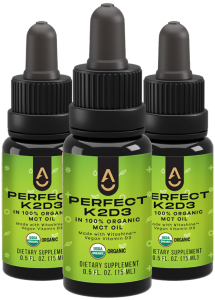
- Vitamin B6 Toxicity: Taking high doses of vitamin B6 (pyridoxine) supplements for an extended period can lead to nerve damage known as peripheral neuropathy. The tolerable upper intake level (UL) for vitamin B6 for adults is set at 100 mg per day. Exceeding this limit may cause adverse effects.
- Vitamin B3 (Niacin) Side Effects: High doses of niacin may cause flushing, itching, and tingling sensations, particularly in the face and neck. This is more common with niacin supplements, especially in the “nicotinic acid” form. Taking aspirin or nonsteroidal anti-inflammatory drugs (NSAIDs) before niacin supplementation may help reduce these side effects. The UL for niacin for adults is set at 35 mg per day from supplements.
- Biotin Interference with Lab Tests: Biotin supplements, often taken for hair and nail health, can interfere with certain lab tests, including hormone assays and thyroid function tests. This interference can lead to inaccurate test results. If you are taking biotin supplements, inform your healthcare provider before any lab tests.
- Folic Acid Masking Vitamin B12 Deficiency: Folic acid supplementation can mask vitamin B12 deficiency, especially in older adults. This is concerning because untreated B12 deficiency can lead to nerve damage and other health issues. It is essential to diagnose and treat B12 deficiency correctly.
- Potential Drug Interactions: B vitamins can interact with certain medications, affecting their efficacy or causing adverse effects. For instance, vitamin B6 may interact with some anti-seizure medications, and vitamin B9 (folic acid) can interact with certain anticonvulsant and antifolate drugs. Always inform your healthcare provider about any supplements you are taking, especially if you are on medication.
It’s essential to recognize that dangers associated with B vitamins usually arise from excessive supplementation, especially when taken without medical supervision or in individuals with certain medical conditions. In a balanced diet, most people get sufficient B vitamins from food sources, and deficiencies are relatively rare. If you suspect a deficiency or are considering supplementation, it’s best to consult with a qualified healthcare professional who can guide you based on your individual needs and health status. Remember that obtaining B vitamins from a diverse diet is ideal as it allows for a balance of nutrients and other beneficial compounds that work together to support overall health.
What Else Should You Know About B Vitamins and the Brain?
Apart from the dangers and health benefits discussed earlier, there are several other important aspects to know about B vitamins:
- Bioavailability: The bioavailability of B vitamins varies depending on the source and form of the vitamin. For example, B vitamins from natural food sources are generally more bioavailable than synthetic forms found in supplements. Additionally, some individuals may have genetic variations that affect their ability to absorb or utilize certain B vitamins.
- Food Sources: B vitamins are found in a wide range of foods. For example, thiamine (B1) is abundant in whole grains, nuts, and legumes, while riboflavin (B2) is found in dairy products, leafy greens, and eggs. It is essential to maintain a balanced diet that includes a variety of foods to ensure an adequate intake of all B vitamins.
- Vitamin B Complex: B vitamins often come together in supplements as a “B complex.” This combination ensures that you get a balanced intake of all the B vitamins. Vitamin B complex supplements are commonly used to support energy levels, brain health, and overall well-being.
- Alcohol and B Vitamins: Excessive alcohol consumption can deplete B vitamins, particularly thiamine (B1). Chronic alcohol use can lead to a condition called Wernicke-Korsakoff syndrome, characterized by neurological and cognitive deficits due to thiamine deficiency.
- B Vitamins and Pregnancy: Adequate intake of folic acid (B9) is crucial during pregnancy to prevent neural tube defects in the developing fetus. Pregnant women are often advised to take prenatal supplements containing folic acid.
- Age and Absorption: As we age, our ability to absorb certain nutrients, including B12, may decrease. This can increase the risk of B12 deficiency in older adults. Regular check-ups and monitoring are essential for maintaining optimal B vitamin levels.
- Stress and B Vitamins: Stress can deplete B vitamins, particularly B5 (pantothenic acid) and B6 (pyridoxine). During stressful periods, it may be beneficial to ensure adequate B vitamin intake to support the body’s stress response.
- Vegans and B12: Vitamin B12 is primarily found in animal products, making it essential for vegans to obtain sufficient B12 through fortified foods or supplements.
- B Vitamins and Exercise: B vitamins are important for energy production, making them vital for individuals engaging in regular physical activity. Athletes may have increased B vitamin needs due to their higher energy expenditure.
- Individual Needs: The optimal intake of B vitamins varies from person to person based on factors such as age, sex, lifestyle, and medical conditions. Consulting with a healthcare professional can help determine individual B vitamin requirements.
In summary, B vitamins play diverse and vital roles in supporting overall health, especially brain function, energy metabolism, and the nervous system. While they are generally safe and well-tolerated when obtained through food sources, supplementation should be approached with caution and medical guidance. A balanced diet rich in a variety of whole foods is the best way to ensure adequate intake of B vitamins.
After Thoughts
Incorporating B vitamins into your diet through whole foods or supplementation can have a significant impact on your brain health and cognitive function. These essential nutrients play crucial roles in energy production, neurotransmitter synthesis, mood regulation, and homocysteine metabolism, all of which contribute to a healthy brain.
Remember, it’s always best to consult with a healthcare professional before making any significant changes to your diet or starting a new supplement regimen.
For natural and healing remedies, products, and supplements that can help you live your most optimal healthy life, visit our store here!
To Your Health!
References:
- Kennedy DO. B Vitamins and the Brain: Mechanisms, Dose, and Efficacy—A Review. Nutrients. 2016 Feb;8(2):68. doi:10.3390/nu8020068.
- Durga J, et al. B-vitamins and homocysteine in depression: a meta-analysis. Br J Psychiatry. 2017 Jan;210(1):6-13. doi:10.1192/bjp.bp.115.177071.
- Ford AH, et al. The Effect of B Vitamins on Cognitive Functioning in Older Adults: A Systematic Review and Meta-Analysis. Int J Geriatr Psychiatry. 2017 Feb;32(4):E357-E366. doi:10.1002/gps.4568.
- Young LM, Pipingas A, White DJ, Gauci S, Scholey A. A systematic review and meta-analysis of B vitamin supplementation on depressive symptoms, anxiety, and stress: Effects on healthy and ‘at-risk’ individuals. Nutrients. 2019 Apr;11(4):947. doi:10.3390/nu11040947.
- Smith AD, et al. Homocysteine-lowering by B vitamins slows the rate of accelerated brain atrophy in mild cognitive impairment: a randomized controlled trial. PLoS One. 2010 Sep;5(9):e12244. doi:10.1371/journal.pone.0012244.
- Institute of Medicine (US) Standing Committee on the Scientific Evaluation of Dietary Reference Intakes and its Panel on Folate, Other B Vitamins, and Choline. “Dietary Reference Intakes for Thiamin, Riboflavin, Niacin, Vitamin B6, Folate, Vitamin B12, Pantothenic Acid, Biotin, and Choline.” Washington (DC): National Academies Press (US); 1998. Available from: https://www.ncbi.nlm.nih.gov/books/NBK114310/
- Gaby, A. “Natural Approaches to Epilepsy.” Alternative Medicine Review, Volume 4, Number 5, 1999.
- Bito, T. et al. “Vitamin B12 deficiency and nervous system diseases.” Brain Nerve. 2013 Jun;65(6):665-675.
- FDA. “Biotin (Vitamin B7): Safety Communication – May Interfere with Lab Tests.” U.S. Food and Drug Administration. Published November 5, 2019. Available from: https://www.fda.gov/safety/medical-product-safety-information/biotin-vitamin-b7-safety-communication-may-interfere-lab-tests
- National Institutes of Health (NIH) Office of Dietary Supplements. “Vitamin B6: Fact Sheet for Health Professionals.” Updated July 9, 2021. Available from: https://ods.od.nih.gov/factsheets/VitaminB6-HealthProfessional/
- “Thiamin: Fact Sheet for Health Professionals.” National Institutes of Health (NIH) Office of Dietary Supplements. Updated September 22, 2020. Available from: https://ods.od.nih.gov/factsheets/Thiamin-HealthProfessional/
- “Riboflavin: Fact Sheet for Health Professionals.” National Institutes of Health (NIH) Office of Dietary Supplements. Updated September 22, 2020. Available from: https://ods.od.nih.gov/factsheets/Riboflavin-HealthProfessional/
- “Niacin: Fact Sheet for Health Professionals.” National Institutes of Health (NIH) Office of Dietary Supplements. Updated August 27, 2020. Available from: https://ods.od.nih.gov/factsheets/Niacin-HealthProfessional/
- “Pantothenic Acid: Fact Sheet for Health Professionals.” National Institutes of Health (NIH) Office of Dietary Supplements. Updated September 22, 2020. Available from: https://ods.od.nih.gov/factsheets/PantothenicAcid-HealthProfessional/
- “Vitamin B6: Fact Sheet for Health Professionals.” National Institutes of Health (NIH) Office of Dietary Supplements. Updated July 9, 2021. Available from: https://ods.od.nih.gov/factsheets/VitaminB6-HealthProfessional/
- “Biotin: Fact Sheet for Health Professionals.” National Institutes of Health (NIH) Office of Dietary Supplements. Updated June 3, 2021. Available from: https://ods.od.nih.gov/factsheets/Biotin-HealthProfessional/
- “Folate: Fact Sheet for Health Professionals.” National Institutes of Health (NIH) Office of Dietary Supplements. Updated September 22, 2020. Available from: https://ods.od.nih.gov/factsheets/Folate-HealthProfessional/
- “Vitamin B12: Fact Sheet for Health Professionals.” National Institutes of Health (NIH) Office of Dietary Supplements. Updated September 22, 2020. Available from: https://ods.od.nih.gov/factsheets/VitaminB12-HealthProfessional/


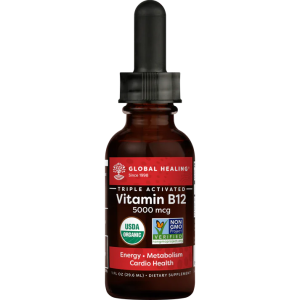




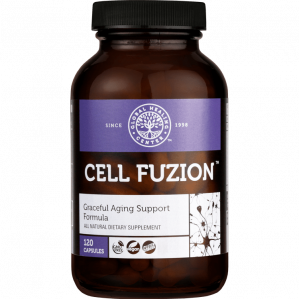
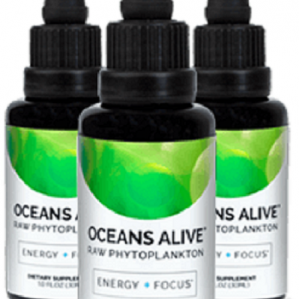

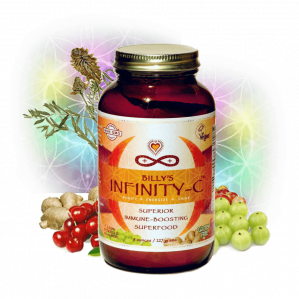












1 Comment
[…] well-being, the spotlight often falls on physical health. However, the profound significance of brain health should not be underestimated. A well-nourished brain serves as the cornerstone of cognitive […]